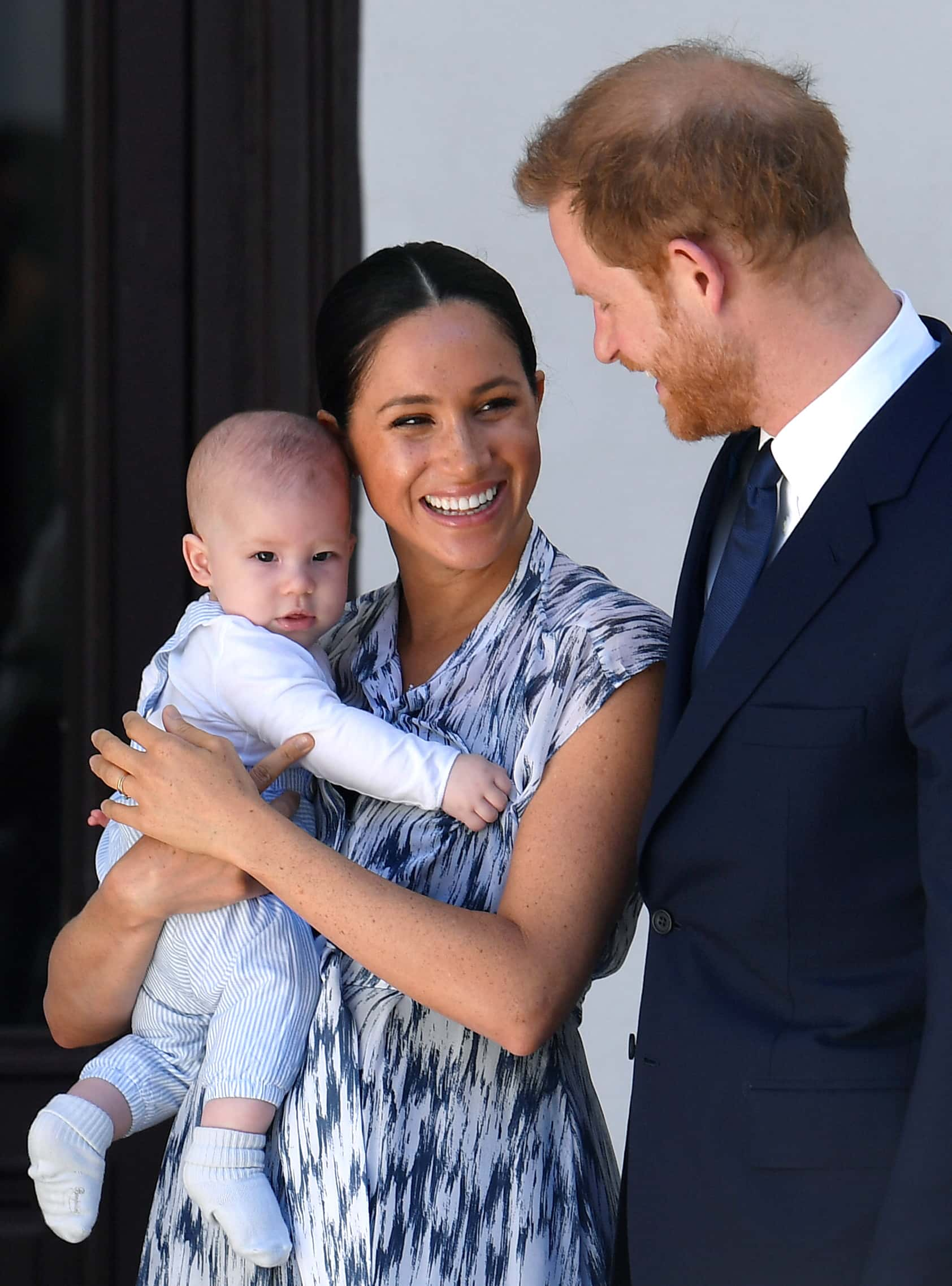Does the royal family have 'ties to slavery'? Cambridge scholar calls it 'an institution invested in whiteness'

The British royal family has now been accused of past ties to 'slavery' by Dr Priyamvada Gopal, a professor of Postcolonial Studies at Churchill College under the University of Cambridge. The academic, who had referred to the monarchy as a 'white supremacist organization' in the past, further emphasized her claims saying the royal family is 'an institution invested in whiteness'. "The monarchy is deeply implicated in the project of empire; a lot of what it possesses came right out of the imperial project. This is not a monarchy that has ever talked about its ties to empire – or to slavery for that matter. I am not going to apologize [for saying that]," she said, according to DailyMail.
Dr. Gopal is facing severe backlash on social media for her 'unapologetic' stance on the shocking remarks. She has been called 'racist' and 'bigot' by users who believe her claims are unfounded and stem from racism. However, this is not the first time the royal family has been accused of historical connections to slavery. Let us find out more about the Royals' past association with the controversial claim.
READ MORE
Sex, lies and audiotapes: Shocking truths the British royal family has tried hard to hide

British Crown's connection to slavery lasted centuries
In 2020, Britain witnessed a rise in anti-racism protests around 'Black Lives Matter' movement, following the brutal death of George Floyd in the USA. In July 2020, Slate published a deep-dive into the darker side of the British monarchy, tracing back centuries. The article particularly unveiled possible connections of the Crown to the slave trade.
In the 1560s, Queen Elizabeth I of England enthusiastically supported the slave-trade expeditions of John Hawkins. During his voyages, Hawkins raided settlements along the West African coast and enslaved hundreds of captives from Portuguese ships. He then sold the African captives in the Spanish Caribbean to end the Portuguese dominance over the European slave trade in Africans, reveals Royal Museum Greenwich.
The success of his second voyage was honored by Queen Elizabeth I with a crest showing a nude African bound with rope, and a coat of arms.
Between 1660 and 1685, King Charles II was in power in Britain, when several members of the royal family reportedly invested in the African slave trade. Within six months of his ascension to the British throne, Charles II granted a charter to the Company of Royal Adventurers into Africa, that gave the company a thousand-year monopoly over trade, land, and adjacent islands on the West African coast from Sahara to Cape of Good Hope. English trade with Africa primarily comprised gold, ivory, redwood, hides, and slaves - which helped bolster the monarchy's wealth.
The close connections of the Royal Adventurers with the Crown attracted investors who sought to profit from the sale and exploitation of African women, men, and children as slaves, according to Slate.
A new charter in 1663 prompted the company to enslave and deliver thousands of Africans to the English Caribbean, shows British Library. By 1664, they had 'delivered' over 3,000 enslaved African men, women, and children to Barbados and 780 captives to Jamaica.
Though the Royal Adventurers got dissolved during the Second Anglo-Dutch war, new English merchants arrived on the scene to sustain the slave trade with Africa. Due to increased demand for slave labor in the Americas, King Charles II issued a new charter on the slave trade in 1672 to the Royal African Company of England.
"The Royal African Company of England shipped more enslaved African women, men, and children to the Americas than any other single institution during the entire period of the transatlantic slave trade," revealed historian William Pettigrew. The company's seal itself showed an elephant with a castle flanked by two enslaved African men. Prior to assuming royal power, King James II even served as the governor of the Royal African Company till 1688. Before the African captives were sent off to America, they were branded with the letters D.Y. (Duke of York, King James II's previous title) or R.A.C.E. (Royal African Company of England).
Between 1690 and 1807, the slave trade became one of the most profitable industries in Britain, protected by the royal family. During this period, over six million African people were reportedly enslaved and transported to the Americas.
The Slave Trade Act of 1807 outlawed the slave trade for British subjects, but then the illegitimate slave trade started flourishing. The pro-slavery ideology of King George III and his sons had further delayed the abolition of the British slave trade. But, a few royal family members, like Prince William Frederick who was George III's nephew and son-in-law, was a vocal anti-slavery activist.
The British Crown publicly spoke in support of the anti-slavery cause for the first time in 1838, as Queen Victoria's husband Prince Albert accepted to serve as the president of the Society for the Extinction of the Slave Trade and for the Civilization of Africa.
"The monarchy couldn’t even handle a light-skinned beautiful woman"
Cambridge scholar Dr. Priyamvada Gopal had faced criticism in the past also for her remarks, like the time she spoke out about Meghan Markle, saying, "The monarchy couldn’t even handle a light-skinned beautiful woman. She was the wife of a prince... and was drummed out of this country by the media."
Last week, Dr. Gopal compared Dr. Tony Sewell, who heads the Commission on Race and Ethnic Disparities, with Adolf Hitler's infamous propaganda chief Joseph Goebbels. "Even Dr. Goebbels had a research PhD," she commented about Dr. Sewell, according to the Daily Mail.

Now, she has earned severe flak for her 'slavery' remarks.
"@PriyamvadaGopal should look to her country of birth before she starts slagging off the country that gives her a job & wages. If she doesn't like it here she could go back from whence she came. Leave the Queen alone,'' wrote one Twitter user. Another asked, "@PriyamvadaGopal If you hate Britain, the British and our Royal Family so much, why do you live here? Simple question, needs a simple answer please. So many other places without history of racism and slavery - Saudi (Oh, wait a minute!), Mogadishu - (Oh, hang on!). Somewhere?"
"Why are you so racist against white people? What is your problem ? Did you not get enough attention as a child or something," one user launched a personal attack at her.
@PriyamvadaGopal should look to her country of birth before she starts slagging off the country that gives her a job & wages. If she doesn't like it here she could go back from whence she came. Leave the Queen alone
— caroline (@butterfly1a) April 5, 2021
@PriyamvadaGopal If you hate Britain, the British and our Royal Family so much, why do you live here? Simple question, needs a simple answer please. So many other places without history of racism and slavery - Saudi (Oh, wait a minute!), Mogadishu - (Oh, hang on!). Somewhere?
— Jonathan R (@drjonathan77) April 5, 2021
Why are you so racist against white people? What is your problem ? Did you not get enough attention as a child or something.
— krispin (@krispin82150659) April 5, 2021
Despite criticism, Dr Gopal has refused to retract her statement or apologize for the same.










